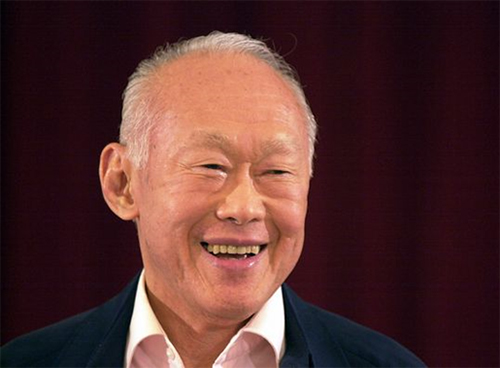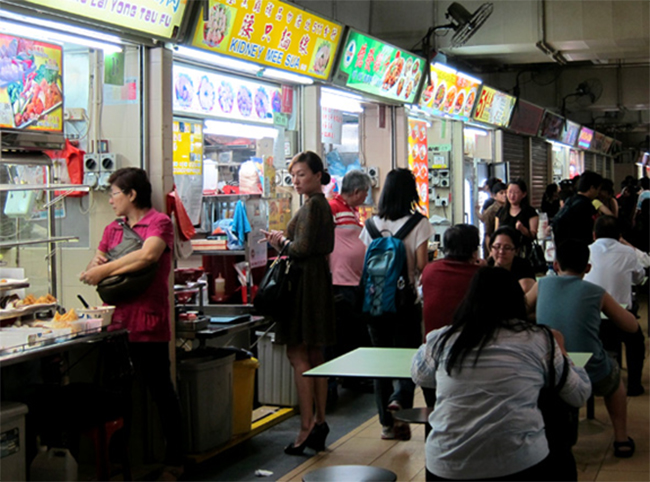Back in the early days of Hoffman Asia Pacific, U.S. clients asked us to provide tour support for their executives visiting Singapore. They wanted us to set up meetings with media and local leadership, create schedules and provide chauffeur service.
Eventually, we responded to those requests this way:
“Hold on, you don’t need us just for that. We do more than logistics to make your visit productive. We can give guidance on the local market and its issues, briefings on the backgrounds and interests of the individuals you’ll be meeting, suggested messaging by audience and any relevant cultural issues.”
On that last point, a recurring challenge with one U.S. exec was his repeated reference to “this part of the world” when talking about Singapore and Southeast Asia to reporters and editors. Granted, that was 20 years ago, and the region was only beginning to come into its own as an international business hub.
“You sound like an explorer discovering a distant land,” I told him. “This part of the world is Singapore and other countries in the region. Give it the dignity of a country name.”
I resisted the temptation of adding how he’d feel if an Asian spokesperson visiting the U.S. spoke of our fair country as “this part of the world.”
Since those “early days” (late 1990s) of recognizing the market potential of Southeast Asia, the sophistication of communication skills by U.S. firms has grown apace. The “pioneering days,” with the missteps, fits and starts, are behind us.
And there was another notion held by many visiting dignitaries that needed “enhancing.” In the late 1990s, Singapore was well into its transition from a low-cost manufacturer of electronic products to a regional power in technical innovation, finance and global shipping. This “little dot on the map of Asia” had strength and influence well beyond its physical profile and small population. The “benevolent dictatorship” (my term, not theirs) of first Prime Minister Lee Kuan Yew continued to push the country into new areas of achievement in business, culture and quality of life.
Our client visitors needed to hear this and acknowledge the progress of the island state — and it wouldn’t hurt to throw in a positive comment about Mr. Lee along the way, if it fit. In other words, show some recognition of their accomplishments before launching into yours.
Did it work? For the most part, yes. In some cases, American execs responded with expression of surprise and appreciation for the advice. Others took the advice with a nod, but went on in their original style. It’s hard for a seasoned, successful businessperson to change ingrained behavior because of hurried advice from a PR guy in a taxi between meetings.
But I felt better having tried.
Those visiting dignitaries relied on public relations counsel more consistently when it came to another key business-travel issue: food. That was easy. This was Singapore, and food was as much a national pastime as baseball is in the U.S. Recommending a place to eat was simply a matter of finding out the visitor’s food preference. Or just putting a pin in the map.
Chinese and Malaysian culinary influences are heavy in Singapore, along with Indonesian and Indian. You can also get good Japanese, Vietnamese and Thai dishes, either in restaurants or in the hawker food stands that dot the island. When my wife visited, she wouldn’t settle for anything but the Blue Ginger Restaurant, which was located down Tanjong Pagar Road from the office. Its food was “Peranakan” style: a fusion of Chinese, Malay and Indonesian flavors. I pushed a lot of visitors to that place.
And, oh, yes, I’d add, there’s a nice French bistro right across the street from the Blue Ginger and a good Indian place on the street right behind the Blue Ginger.”
Being a restaurant expert in Singapore was a breeze.
One highlight of Singapore dining enjoyed widely by residents and visitors alike was Ginger Crab, served year-round at a string of restaurants on or near the beach at East Coast Parkway. You ate … and ate … and went home satiated, often stained with crab sauce, and only wanting to do it again.
Clients usually expressed satisfaction with their dining experiences — not a bad thing for client relations (as long as you were doing everything else right).
Then there was this sharp, young CEO from Silicon Valley, who upon leaving for this trip back to the States, couldn’t resist a pleasant poke with his comment, “Look forward to working and eating in this part of the world again soon.”



Ray,
Thanks a ton for rewinding the clock and taking the time to share your perspectives from starting the Agency’s operation in Asia..
I know everyone enjoyed your series of posts.
Your memories are the foundation for the memories still to come.